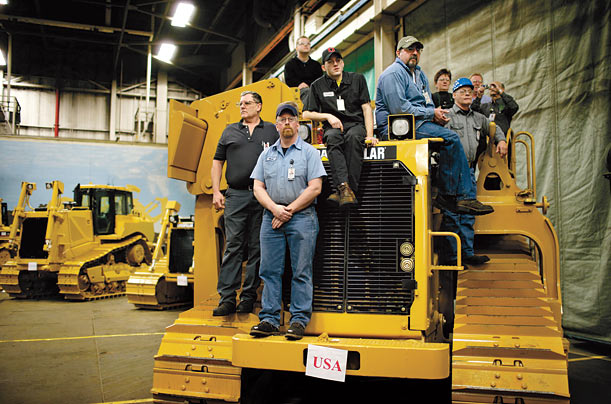
For all the dazzle of the digital age, never forget the essential economic undertaking: busting rocks and moving dirt. You can't have Silicon Valley without first digging up the silicon, and even the smartest building starts out as a hole in the ground. So the news that Caterpillar is laying off 5,000 workers — bringing its total of recent layoffs to 20,000 — only confirms that the economic contagion is spreading, from the executive floors of high finance to the bedrock world of tractors and dump trucks.
A recession is when your neighbor loses his job, the saying goes; a depression is when you lose yours. That line is shifting under the feet of countless Americans. In December, for the first time on record, unemployment rose in all 50 states and the District of Columbia. On Jan. 26, U.S. firms announced more than 70,000 layoffs, then came back the next day with thousands more. Michigan's jobless rate is in the double digits, and it may soon have company.
If Caterpillar is the ultimate hardware maker, fashioning massive steel earthmovers in vast factories that spark and clang, Microsoft, which recently announced its first serious job cuts, is the behemoth of software, silently manipulating ones and zeros. Worlds apart, they've come together in the layoff business. Whether a company chops trees (Weyerhaeuser) or prices (Target), whether it sells Lipitor (Pfizer) or lumber (Home Depot), whether it services oil rigs (Baker Hughes) or cell phones (Sprint Nextel), job one is cutting payroll.
Capitol Hill, meanwhile, hums at peak capacity. Congress is frantically stacking pet projects into a trillion-dollar tower in hopes that — by painting the word stimulus down the side — it will lift off like an economic rocket. There is no Plan B. The hero of recessions past — the American shopper — has left the mall. For the first time in its history, the National Retail Federation predicts consumers will actually spend less over the coming year. Super Spender can't save the day when stuck in the unemployment line.